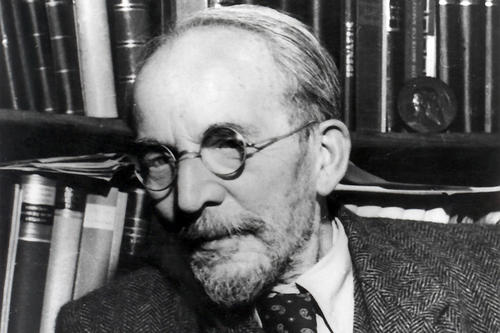Friedrich Meinecke
Internationally celebrated historian Friedrich Meinecke (born October 30, 1862, in Salzwedel; died February 6, 1954 in Berlin), a professor of history at Berlin’s Friedrich-Wilhelms-Universität, moved to Freie Universität on November 10, 1948.
Friedrich Meinecke
Image Credit: Bratke / Universitätsarchiv der Freien Universität Berlin, Fotosammlung
Together with Wilhelm Dilthey and Ernst Troeltsch, Meinecke was among the pioneers of political philosophy. From 1914 to 1932, Meinecke was a professor at Friedrich-Wilhelms-Universität, Berlin’s oldest university, which existed in this form from 1828 to 1946, when it was renamed Universität Unter den Linden. Then, in 1949, it was renamed again, becoming Humboldt-Universität zu Berlin, the name it still bears today. During World War I, Meinecke was among the few German professors to push for a negotiated peace. In 1935, the Nazi regime removed him as the editor of the Historische Zeitschrift, a position he had held since 1896. In 1946, Meinecke published Die deutsche Katastrophe [The German Catastrophe], a reconstruction of German history from the viewpoint of the humanities.
In his speech during the celebration to mark the founding of Freie Universität Berlin, on December 4, 1948, Meinecke said:
“We know that over there as well, despite the misconception about this time period in which people there are caught up, the drive for truth and freedom has not been extinguished. Let us put out of our minds the notion of starting a direct fight between the two universities. Let not fighting against each other, but competing with each other, be our watchword!”
In 1951, the former Seminar for Medieval and Modern History at Freie Universität Berlin was renamed the Friedrich Meinecke Institute (FMI) in Meinecke’s honor.

